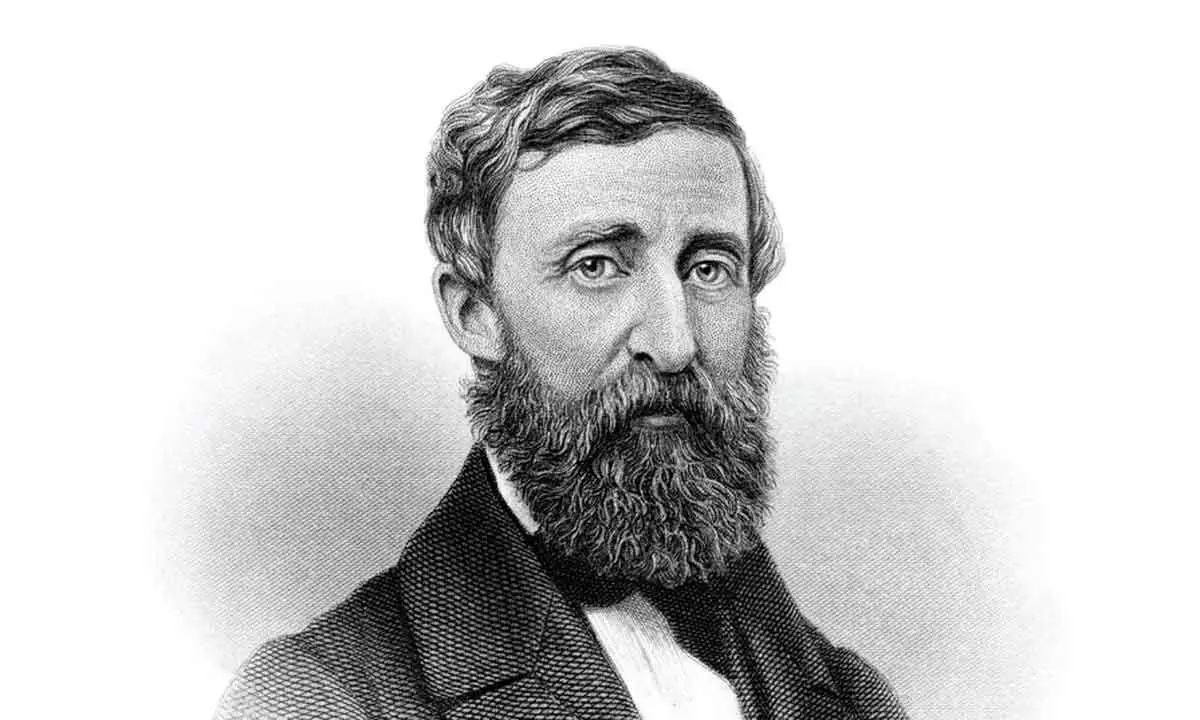Thoreau and bitterness in Indian society

Henry David Thoreau
Henry David Thoreau warned in his seminal book Walden that "the cost of a thing is the amount of what I will call life which is required to be exchanged for it, immediately or in the long run."
Henry David Thoreau warned in his seminal book Walden that "the cost of a thing is the amount of what I will call life which is required to be exchanged for it, immediately or in the long run." He lived for just 44 years, and yet managed to live the life all of us desire and deserve. Thoreau was born 205 years ago.
A man of simple tastes, hardy habits, and of preternatural powers of observation, he became a patient and successful student of nature in every aspect, and obtained an acquaintance with the history of the river on whose banks he lived, and with the habits of plants and animals, which made him known and valued by naturalists. He went to Harvard.
But it is not for these things that we need to remember or discuss him. He is more relevant to the world than ever. What Thoreau said that many years before is still relevant and it would remain relevant forever. As long as our governments suppress peoples with their policies, as long as man forgoes his freedoms willingly and as long as the ignorance of both keeps them in such situations, Thoreau remains relevant.
Thoreau argues that individuals should not permit governments to overrule or atrophy their consciences, and that they have a duty to avoid allowing such acquiescence to enable the government to make them the agents of injustice. Thoreau was motivated in part by his disgust with slavery and the Mexican–American War (1846–1848). Thoreau asserts that because governments are typically more harmful than helpful, they therefore cannot be justified. Democracy is no cure for this, as majorities simply by virtue of being majorities do not also gain the virtues of wisdom and justice.
The judgment of an individual's conscience is not necessarily inferior to the decisions of a political body or majority, and so "It is not desirable to cultivate a respect for the law, so much as for the right. The only obligation which I have a right to assume is to do at any time what I think right.... Law never made men a whit more just; and, by means of their respect for it, even the well-disposed are daily made the agents of injustice."
When governments feel it right to adopt an agenda that does not have the people's approval or when they try to implement something which does not have the general mandate of the people, a clash is inevitable between the governments and the people. We see it in various forms in the world. Sri Lankan crisis is one such. The bitterness in the society in India is another. The crisis in countries like Pakistan or the crisis faced by Europe over Ukraine are no different. So is about Russia. These governments do not have the people's mandate.
People may not have read Henry David Thoreau. Yet, they feel the same way. He had only given an expression to the ire in them. More than the people, it is the governments and the politicians who should read him for their own good. Governments' mandate is not to remain anti-people. How much more civilised has the society become under someone's governance is what matters more.














